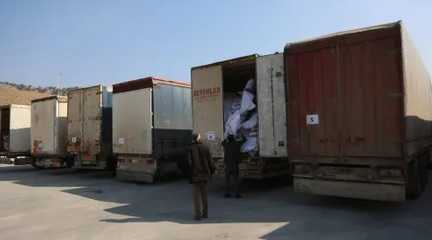
13 Feb 2023; MEMO: On Sunday ten trucks carrying relief materials, food and tents entered northwest Syria almost a week after a devastating earthquake brought entire apartment blocks to the ground and killed at least 33,000 people here and in southern Turkiye.
For the first four days the road leading to the only crossing through which humanitarian aid enters this region, Bab Al-Hawa, was destroyed by the quake and nothing could get through.
Groups of volunteers from each town joined the White Helmets to search for survivors under the rubble, but as time passed and with limited equipment, they became increasingly less hopeful they would find people alive.
Then on Thursday, six trucks carrying detergent entered, and on Saturday 15 trucks carrying food entered. Today, they are expecting generators, medical equipment and food.
However, none of them have construction material, which is badly needed to rebuild the thousands of destroyed homes.
"It is nowhere near what is required," says Asaad Al-Asaad, a journalist in northwest Syria who photographed the trucks arriving. "So far, none of it has been distributed. It has been sent to civil society organisations, and they in turn will distribute it to the affected people."
The 4.5 million Syrians who live in the northern provinces of Syria already lived in poverty. Malnutrition, a lack of water, inadequate medicine, and a serious cholera outbreak were just some of the prevalent crises. Ninety per cent of people already relied on humanitarian assistance.
The UN has said the situation in northwest Syria is becoming increasingly desperate with some 5.3 million people homeless and 900,000 in need of hot food.




